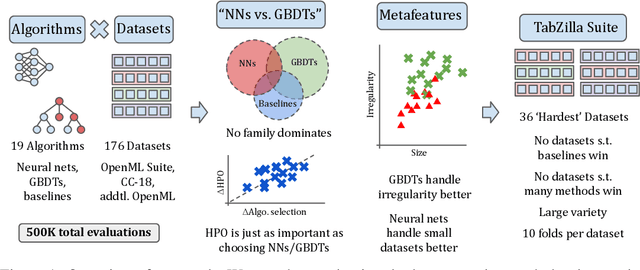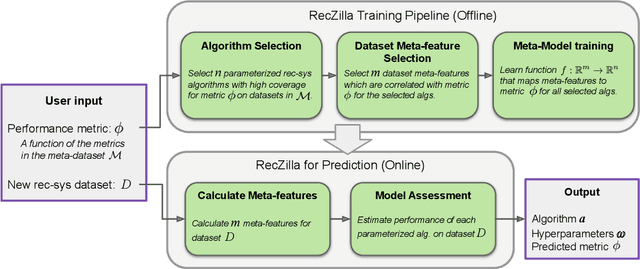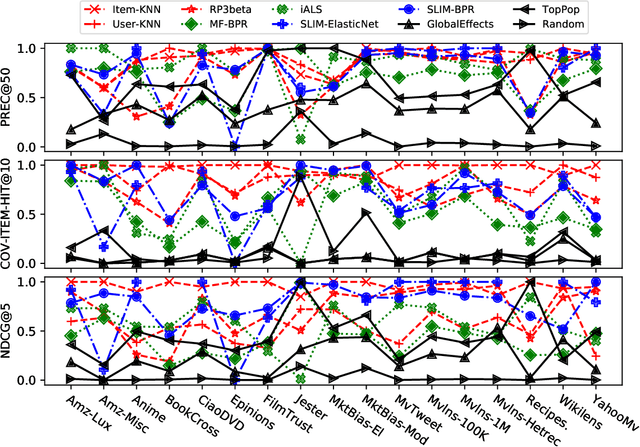Jonathan Valverde
When Do Neural Nets Outperform Boosted Trees on Tabular Data?
May 04, 2023



Abstract:Tabular data is one of the most commonly used types of data in machine learning. Despite recent advances in neural nets (NNs) for tabular data, there is still an active discussion on whether or not NNs generally outperform gradient-boosted decision trees (GBDTs) on tabular data, with several recent works arguing either that GBDTs consistently outperform NNs on tabular data, or vice versa. In this work, we take a step back and ask, 'does it matter?' We conduct the largest tabular data analysis to date, by comparing 19 algorithms across 176 datasets, and we find that the 'NN vs. GBDT' debate is overemphasized: for a surprisingly high number of datasets, either the performance difference between GBDTs and NNs is negligible, or light hyperparameter tuning on a GBDT is more important than selecting the best algorithm. Next, we analyze 965 metafeatures to determine what properties of a dataset make NNs or GBDTs better-suited to perform well. For example, we find that GBDTs are much better than NNs at handling skewed feature distributions, heavy-tailed feature distributions, and other forms of dataset irregularities. Our insights act as a guide for practitioners to decide whether or not they need to run a neural net to reach top performance on their dataset. Our codebase and all raw results are available at https://github.com/naszilla/tabzilla.
On the Generalizability and Predictability of Recommender Systems
Jun 23, 2022



Abstract:While other areas of machine learning have seen more and more automation, designing a high-performing recommender system still requires a high level of human effort. Furthermore, recent work has shown that modern recommender system algorithms do not always improve over well-tuned baselines. A natural follow-up question is, "how do we choose the right algorithm for a new dataset and performance metric?" In this work, we start by giving the first large-scale study of recommender system approaches by comparing 18 algorithms and 100 sets of hyperparameters across 85 datasets and 315 metrics. We find that the best algorithms and hyperparameters are highly dependent on the dataset and performance metric, however, there are also strong correlations between the performance of each algorithm and various meta-features of the datasets. Motivated by these findings, we create RecZilla, a meta-learning approach to recommender systems that uses a model to predict the best algorithm and hyperparameters for new, unseen datasets. By using far more meta-training data than prior work, RecZilla is able to substantially reduce the level of human involvement when faced with a new recommender system application. We not only release our code and pretrained RecZilla models, but also all of our raw experimental results, so that practitioners can train a RecZilla model for their desired performance metric: https://github.com/naszilla/reczilla.
 Add to Chrome
Add to Chrome Add to Firefox
Add to Firefox Add to Edge
Add to Edge